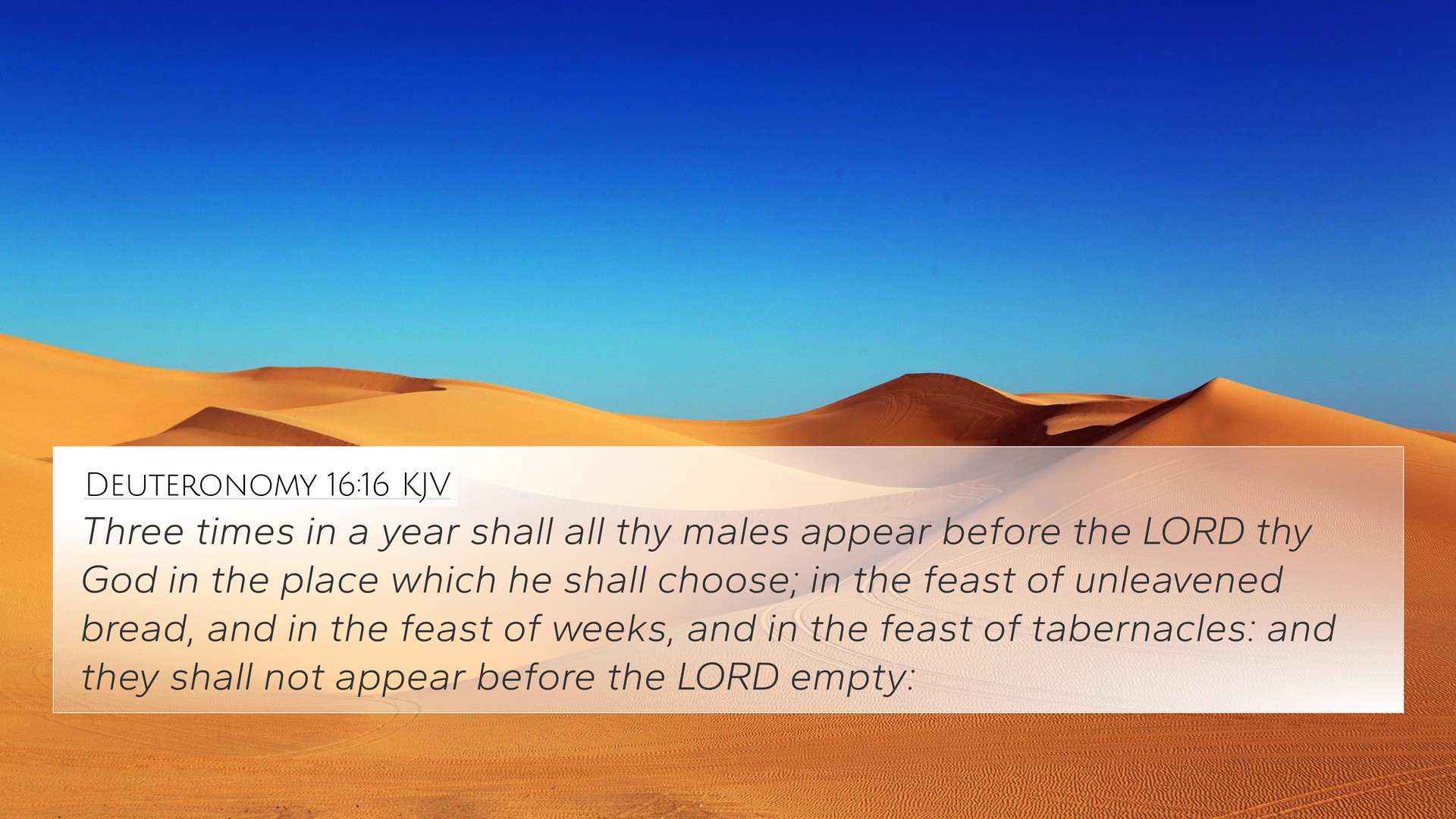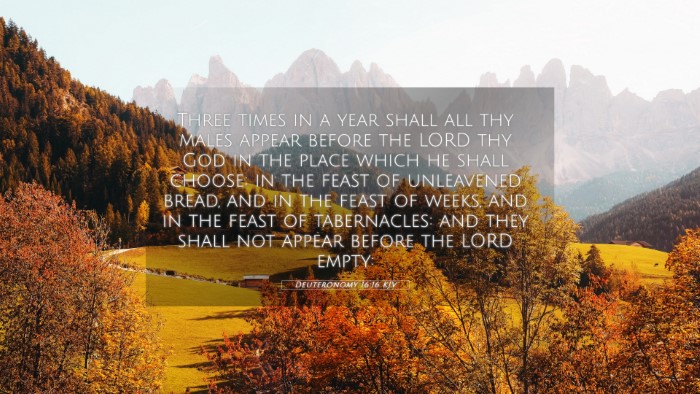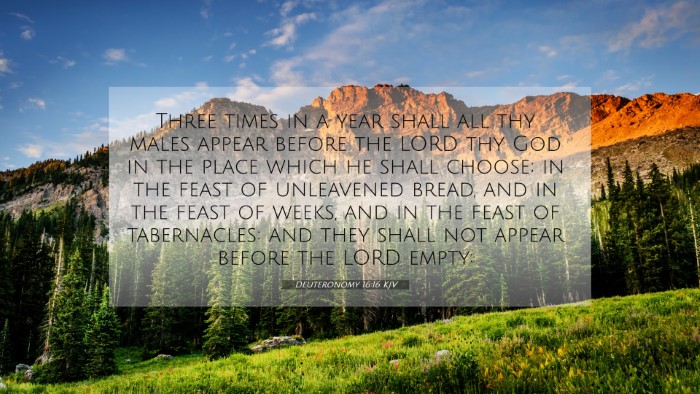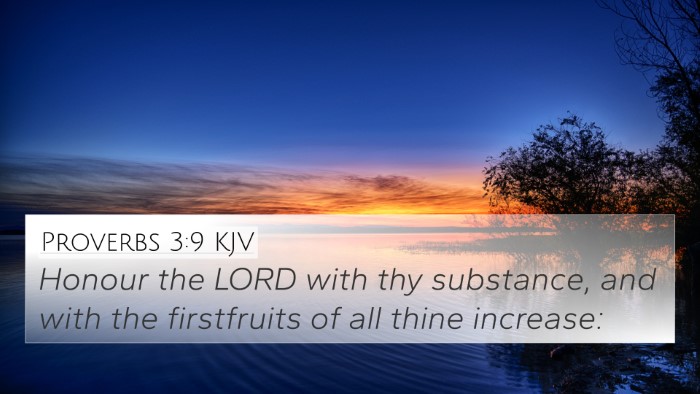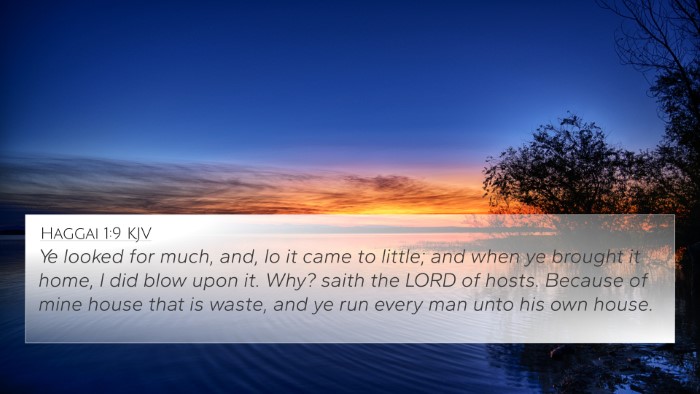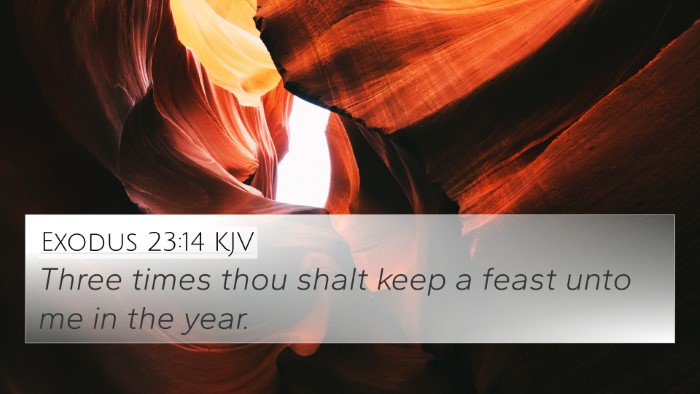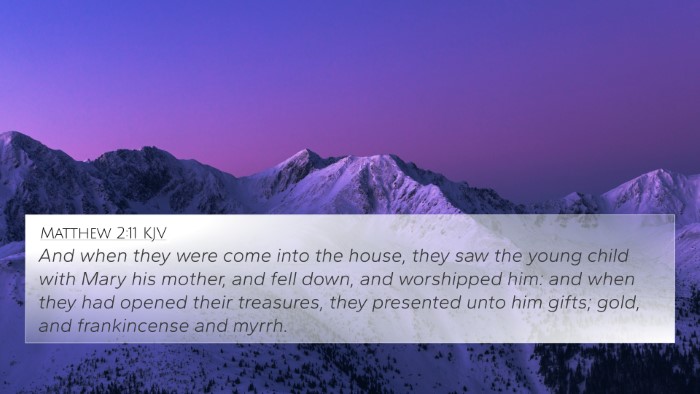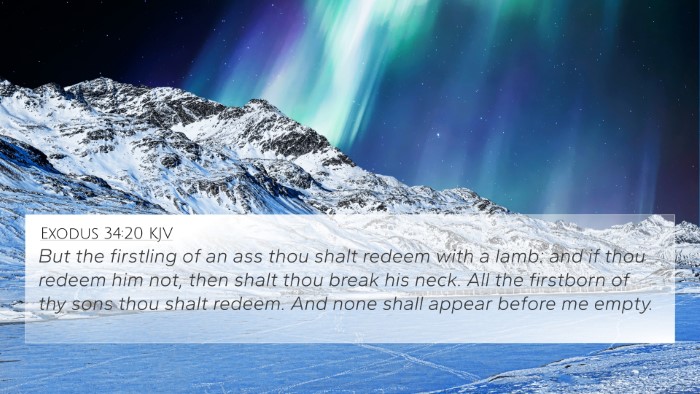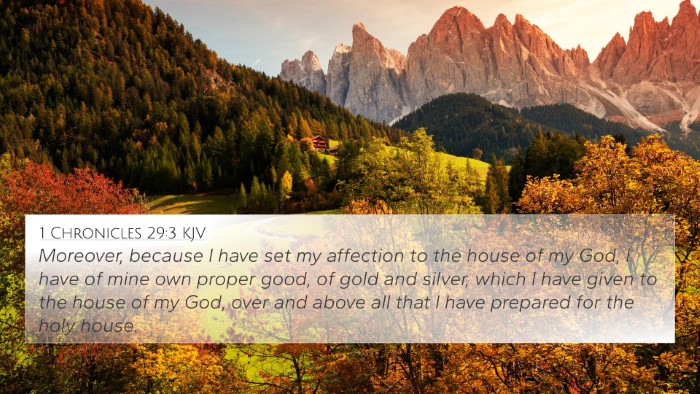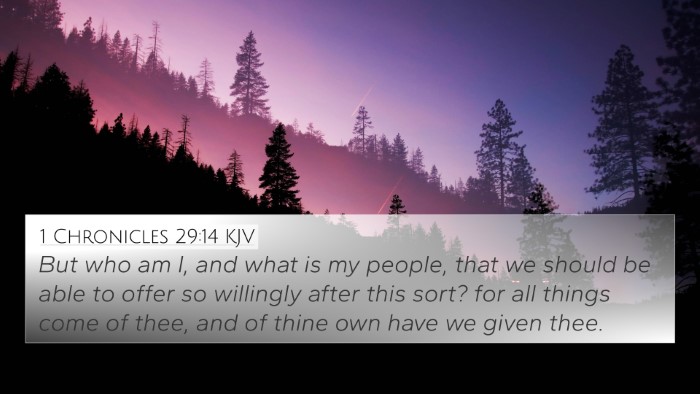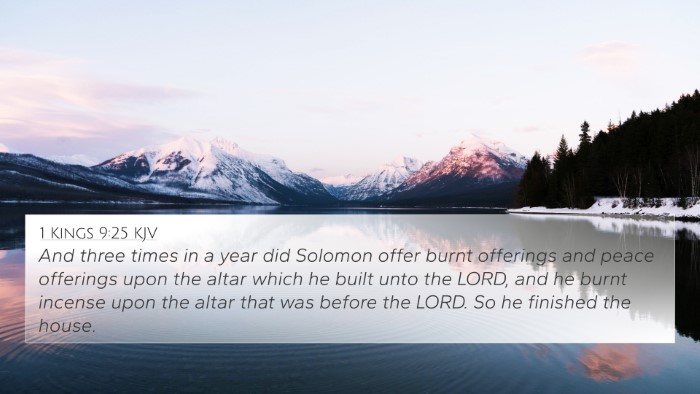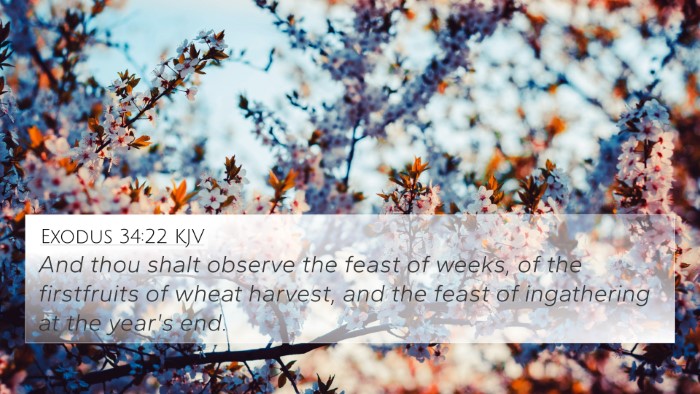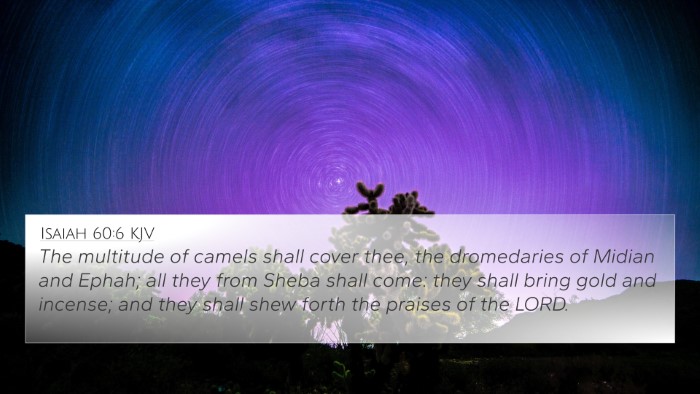Understanding Deuteronomy 16:16
Deuteronomy 16:16 states: "Three times a year shall all thy males appear before the LORD thy God in the place which he shall choose; in the feast of unleavened bread, and in the feast of weeks, and in the feast of tabernacles: and they shall not appear before the LORD empty:" This verse emphasizes the importance of three major Jewish feasts and the obligation of Israelite males to present themselves before God.
Summation of Insights
The commandment presented in this verse emphasizes not only attendance but also the significance of bringing offerings. Here are key insights derived from various public domain commentaries:
-
Matthew Henry:
Henry explains the divine purpose behind these festivals. They foster community and unity among the Israelites, and they serve as reminders of God's providence and faithfulness. Each feast has unique attributes: the Feast of Unleavened Bread commemorates the Exodus, the Feast of Weeks celebrates the harvest and the giving of the Law, and the Feast of Tabernacles recalls the wilderness journey.
-
Albert Barnes:
Barnes points out that "not to appear before the LORD empty" implies the importance of gratitude through offerings. This reflects a heart posture of thankfulness and acknowledgment of God's blessings throughout the year.
-
Adam Clarke:
Clarke elaborates on the festivals’ locations. God specified these events must take place in the location He would choose (Jerusalem), indicating that worship is to be collective and centered in a designated place.
Bible Cross-References
Deuteronomy 16:16 connects with several other scriptures that illuminate its themes:
- Exodus 23:14-17: Discusses three yearly feasts and the requirement of presenting oneself before God.
- Leviticus 23:4-44: Provides a detailed list and description of the Jewish festivals, reinforcing their significance.
- Deuteronomy 12:5-14: Addresses the centralization of worship, echoing the importance of where God has chosen to place His Name.
- Psalm 122:1-4: Expresses the joy of coming to the house of the Lord, highlighting communal worship during these festivals.
- Matthew 5:17-19: Jesus affirms the law and the importance of fulfilling the commandments, linking to the observance of these feasts.
- Acts 2:1: The observance of Pentecost (Feast of Weeks) in the New Testament as an important milestone in the early church.
- Hebrews 10:25: Calls believers to gather together, which relates to the communal aspect of attending the feasts.
Cross-Referencing and Thematic Connections
Understanding Deuteronomy 16:16 can benefit from cross-referencing with themes throughout Scripture. The presence of the Israelite men at the feasts serves as a symbol of corporate worship and connection to God's redemptive history.
- Tools for Bible Cross-Referencing: Utilize a Bible concordance or online Bible cross-reference guide to explore connections.
- Identifying Connections: Look at the relationship between the Old Testament laws and the New Testament grace that fulfills these commands in a spiritual manner.
- Bible Cross-reference System: Implement a system for keeping track of links between various scriptures through comprehensive Bible reference resources.
- How to Use Bible Cross-References: Seek to understand contextual meanings while drawing from both Testaments for a full view.
Conclusion
Deuteronomy 16:16 serves as a significant reminder of the need for community worship, acknowledgment of God's sovereignty, and the necessity of heartfelt offerings. By engaging with this passage and its connections through comparative Bible verse analysis, one can deepen their understanding of God’s requirements for His people.
This process of cross-referencing Bible texts ultimately enriches the believer’s experience, promoting a fuller grasp of the cohesive narrative woven throughout Scripture.
